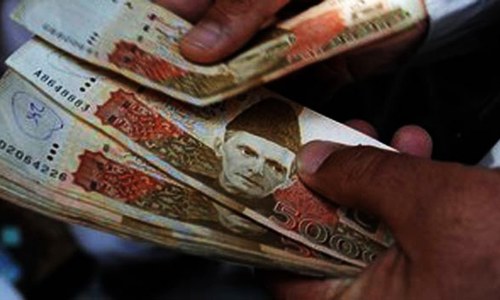WASHINGTON: The international community loses hundreds of billions of dollars every year due to trade-based money laundering, says a US report which identifies China, Russia, Mexico and India as the top four sources of illicit financial outflows.
The practice also costs Pakistan more than $10bn a year.
The US State Department’s International Narcotics Control Strategy Report, released a couple of days ago, refers to TBML (trade-based money laundering), the process by which criminals use a legitimate trade to disguise their criminal proceeds from their unscrupulous sources.
This practice allows traders and the currency mafia to launder hundreds of billions of dollars every year. It is one of the most sophisticated methods of cleaning dirty money and TBML red flags are among the hardest to detect.
In Pakistan, estimates of illicit financial flows put over $10bn as escaping taxation and being siphoned off outside the country. This is with nearly one-third of the population living below the poverty line.
The report identifies India as the fourth largest source of illicit financial outflows in the world. It notes that India’s main money laundering vulnerability comes from a widespread lack of access to formal financial institutions, particularly in the rural sector, that has resulted in the growth of informal financing networks.
The report also refers to a study by a United States think-tank, the Global Financial Integrity (GFI), which estimates that India loses up to $51bn every year due to illicit financial outflows.
China tops the GFI list with $139bn average outflow of illicit finances per annum, followed by Russia ($104bn) and Mexico ($52.8bn).
The section on Afghanistan notes that terrorist and insurgent financing, money laundering, bulk cash smuggling, abuse of informal value transfer systems and other illicit activities financing criminal activity continue to threaten the country’s security and development.
“Afghanistan remains the world’s largest opium producer and exporter. Corruption remains a major obstacle to the nation’s progress,” the report says.
It notes that Afghanistan’s National Unity Government has enacted laws and regulations to combat financial crimes, but faces a significant challenge in implementing and enforcing them.
The report also advises India to consider the regulation of traditional money transfer methods and further facilitate the development and expansion of new payment products and services, including mobile banking.
It notes that the most common money laundering methods in India include opening multiple bank accounts to hide funds, intermingling criminal proceeds with licit assets, purchasing bank cheques with cash and routing funds through complex legal structures.
Transnational criminal organisations in India use offshore corporations and TBML to disguise the criminal origins of funds and companies use trade-based money laundering to evade capital controls. Illicit funds are sometimes laundered through real estate, educational programmes, charities and election campaigns.
Laundered funds in India are derived from trafficking of narcotics and people and illegal trade, as well as tax avoidance and economic crimes.
Counterfeit Indian currency has also been a problem.
The report notes that in November 2016, the Reserve Bank of India demonetised the 500- and 1,000-rupee notes and introduced new banknotes to try to crack down on “black money” stemming from corruption, tax evasion and other illicit financial activities. While this action addresses the problem of counterfeit currency, it does little to mitigate long-term money laundering risks.
It complains that US investigators have had limited success in coordinating the seizure of illicit proceeds with Indian counterparts.
Published in Dawn, March 6th, 2017













































